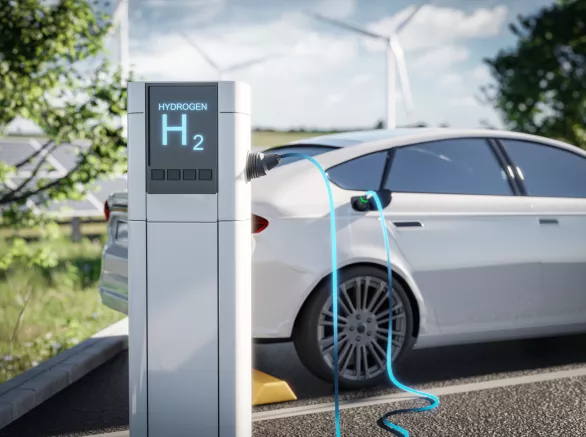

- Ph.D., Chemical Engineering, Massachusetts Institute of Technology (MIT), 2014
- Dipl.-Ing., Mechanical Engineering, RWTH Aachen University, Germany, 2008
- Professional Engineer Chemical, California, #7005
- 40-Hour Hazardous Waste Operation and Emergency Response Certification (HAZWOPER)
- Certified Fire and Explosion Investigator (CFEI)
- American Institute of Chemical Engineers (Senior Member, AIChE)
- National Association of Fire Investigators (NAFI)
- National Fire Protection Association (NFPA)
- - Principal Member of the Committee on Hydrogen Technology responsible for NFPA 2 Hydrogen Technologies Code
- - Alternate Member of the Committee on Classification and Properties of Hazardous Chemical Data responsible for NFPA 704 Standard System for the Identification of the Hazards of Materials for Emergency Response
- International Council on Large Electric Systems (CIGRE)
- - Member of Joint Working Group C5/C1.35 Integration of hydrogen in electricity markets and sector regulation
- CSA Group
- - Member of the Fuel Cell Technical Committee
- - Member of the Hydrogen Generators – Fuel Processing Technical Subcommittee
- - Member of the Stationary Fuel Cell Power Systems Technical Subcommittee
- Verein deutscher Ingenieure (VDI)
- German
Dr. Wechsung is a chemical engineer in Exponent's Thermal Sciences practice consulting primarily in the areas of hydrogen, petrochemical, chemical and industrial processing, oil and gas, process safety, risk analysis, fire and explosions, and advanced modeling. He has investigated incidents at petroleum refineries, chemical, industrial and waste processing plants and storage facilities as well as fires and explosions at residential and industrial sites.
Dr. Wechsung has supported clients in international arbitrations concerning the design, engineering, construction, and commissioning of chemical plants and power generation systems. He also applies his expertise to challenges clients face in the energy transition including the production, storage, and transportation of blue and green hydrogen.
Dr. Wechsung is experienced in modeling, simulating, and optimizing industrial processes and process networks. He leverages his understanding of multi-component thermodynamics, fluid dynamics and reactive systems to analyze process scale-up, upsets, loss of containment, runaway reactions, and product releases from process systems and product storage. He is skillful in using commercial chemical process simulators such as Aspen Plus© and interpreting process historian data.
Dr. Wechsung has evaluated infringement and validity of patents and trade secrets for petroleum technologies. He has performed dust hazard analyses (DHA) for manufacturers handling combustible organic and metal dusts, hazard identification (HAZID) workshops and process hazard analyses (PHA) such as HAZOPs.
Dr. Wechsung has held key roles in multiple industrial process development projects, including methane pyrolysis for sustainable hydrogen production with a reduced carbon footprint, and has conducted thorough risk assessments. He has successfully supported pilot plant operations for process scale-up and has worked closely with major multinational engineering companies to bring new technologies to the market. Additionally, he has advised senior management on the impact and mitigation of incidents affecting chemical production sites. He understands the value contained in industrial data sets and is experienced in analyzing these with state-of-the-art methods to draw actionable conclusions.
Prior to joining Exponent, Dr. Wechsung worked in multiple roles for BASF, one of the world's largest chemical companies. At BASF he developed new chemical processes, led research project teams, advanced digital capabilities, and supported the world's largest integrated chemical complex in Ludwigshafen, Germany, a site with more than one hundred plants. Previously, he conducted his Ph.D. research at Massachusetts Institute of Technology (MIT) in the Department of Chemical Engineering. His research focused on developing cutting-edge numerical methods for optimization of nonlinear models and their application in case studies taken from liquefied natural gas (LNG) processing and coal combustion.
Achim's recent insights
